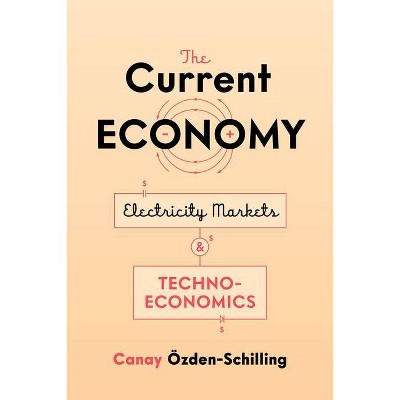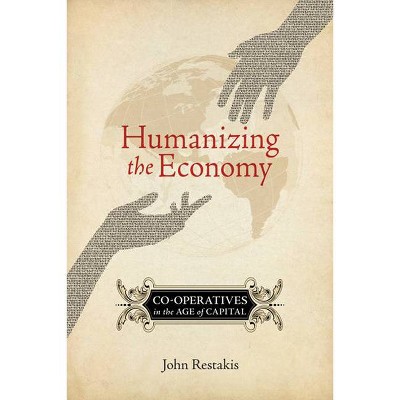The Current Economy - by Canay Özden-Schilling (Paperback)

Similar Products
Products of same category from the store
AllProduct info
<p/><br></br><p><b> About the Book </b></p></br></br>"Electricity is a quirky commodity: more often than not, it cannot be stored, transported except through dedicated routes, or imported from overseas. Before lighting up our homes, it changes hands through specialized electricity markets that rely on engineering expertise to be traded competitively while respecting the physical requirements of the electric grid. The Current Economy is an ethnography of electricity markets in the United States that shows the heterogenous and technologically inflected nature of economic expertise today. Based on ethnographic fieldwork among market data analysts, electric grid engineers, and citizen activists, this book provides a deep dive into the convoluted economy of electricity and its reverberations throughout daily life. Canay èOzden-Schilling argues that many of the economic formations in everyday life come from work cultures rarely suspected of doing economic work: cultures of science, technology, and engineering that often do not have a claim to economic theory or practice, yet nonetheless dictate forms of economic activity. Contributing to economic anthropology, science and technology studies, energy studies, and the anthropology of expertise, this book is a map to the everyday infrastructures of economy and energy into which we are plugged as denizens of a technological world"--<p/><br></br><p><b> Book Synopsis </b></p></br></br><p>Electricity is a quirky commodity: more often than not, it cannot be stored, easily transported, or imported from overseas. Before lighting up our homes, it changes hands through specialized electricity markets that rely on engineering expertise to trade competitively while respecting the physical requirements of the electric grid. <i>The Current Economy</i> is an ethnography of electricity markets in the United States that shows the heterogenous and technologically inflected nature of economic expertise today. Based on ethnographic fieldwork among market data analysts, electric grid engineers, and citizen activists, this book provides a deep dive into the convoluted economy of electricity and its reverberations throughout daily life.</p> <p>Canay Özden-Schilling argues that many of the economic formations in everyday life come from work cultures rarely suspected of doing economic work: cultures of science, technology, and engineering that often do not have a claim to economic theory or practice, yet nonetheless dictate forms of economic activity. Contributing to economic anthropology, science and technology studies, energy studies, and the anthropology of expertise, this book is a map of the everyday infrastructures of economy and energy into which we are plugged as denizens of a technological world.</p><p/><br></br><p><b> Review Quotes </b></p></br></br><br>Electricity is ordinary. Electricity is extraordinary. In this extraordinary ethnography, Canay Özden-Schilling re-introduces us to this mundane form of energy through its recent marketization process. At the cutting edge of anthropological approaches to capitalism and infrastructure, this is a masterful account of a commodity that kicks back.--Hannah Appel, University of California, Los Angeles<br><br>With incredible ethnographic skill and formidable theoretical insight, <i>The Current Economy</i> shows how things that we presume to be singular, such as electric grids, can be multiplied, recast as sources of profits, resisted as intrusions into middle class lives, and much more. This is essential reading for all interested in discovering how the dominant economic imagination is much more than market orthodoxy.--Andrea Ballestero, Rice University<br><p/><br></br><p><b> About the Author </b></p></br></br><b>Canay Özden-Schilling</b> is Assistant Professor of Anthropology at the National University of Singapore.
Price History
Price Archive shows prices from various stores, lets you see history and find the cheapest. There is no actual sale on the website. For all support, inquiry and suggestion messagescommunication@pricearchive.us



















